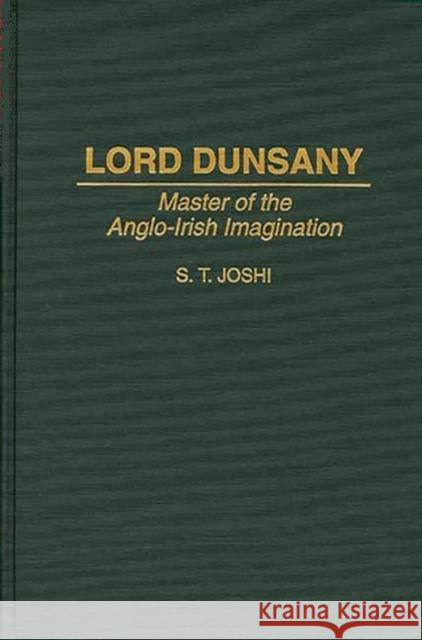Lord Dunsany: Master of the Anglo-Irish Imagination » książka
Lord Dunsany: Master of the Anglo-Irish Imagination
ISBN-13: 9780313294037 / Angielski / Twarda / 1995 / 248 str.
The Irish writer Lord Dunsany (1878-1957) has suffered a regrettable decline in critical esteem. Although one of the most popular and critically acclaimed writers of the early 20th century, he seems to have fallen out of fashion with both the Irish critical community and with enthusiasts of fantasy literature. But Dunsany was one of the critical figures in modern fantasy, a significant influence on Tolkien, Le Guin, and other writers. His own work, written over a 50-year span and covering nearly every literary mode (short story, novel, play, essay, poem), is itself rich with meaning. In this, the first academic study of Dunsany's work, Joshi establishes that Dunsany has a remarkable grasp of the symbolic function of fantasy, and that he used fantasy, horror, and the supernatural as metaphors for his most deeply held convictions on life and society. His entire work is unified by a single overriding theme--the need for human reunification with the natural world--even though this theme takes on many different forms (e.g., scorn of industrialization, demonstration of the moral superiority of animals over human beings, rumination on the extinction of the human race). The course of Dunsany's long career--proceeding from early short stories and plays about the edge of the world to full-length novels to tales of comic fantasy (such as the popular Jorkens stories) to sensitive works about Ireland--reveals a writer constantly searching for new ways to express his central philosophic and aesthetic conceptions. Joshi's volume may best be described as an exercise in literary excavation--an attempt to unearth an unjustly forgotten writer and to show that his work is in need of further study and analysis.











